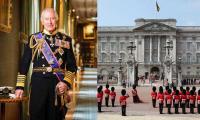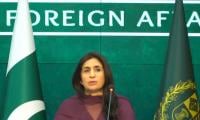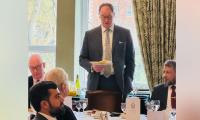Discussion on Pakistan and India’s never-ending dispute for
Kashmir focuses on need for viewing the issue from a human perspective;
following models such as UK-Ireland reconciliation
Karachi
In a session titled, “Kashmir: The Never-Ending Conflict”, on the last day of the 7th Karachi Literature Festival (KLF), all panelists agreed that the Kashmir issue must be viewed from a purely human perspective.
It was the people, they agreed, and their safety and interests on both sides that were supreme.
Their wishes, their rights, their safety, trials and tribulations must be considered foremost.
One of the panelists, Rafique Kathwari, a Kashmiri now settled in New York, stressing the human aspect, said that his mother had begun to lose her mental balance when their family was rent asunder by conflict.
He said it was tragic that even after 68 years, Pakistan and India had not managed to overcome the angst and were squabbling over the territory, totally unaware of the harm it was causing the general population.
“Pakistan says Kashmir is our jugular. The Indians say Kashmir is an integral part. We the Kashmiris, the masters of Kashmir, say leave us alone,” said Kathwari.
During the question-answer session, a gentleman who belongs to the Republic of Ireland but is resident in Karachi since a long time, quoted the case of the 30-year UK-Ireland conflict and said that after all these three decades of conflict, there was a student group at a university who, in cooperation with a group of Roman Catholic priests, highlighted that it was the common innocent folk that were being killed on both sides.
They said that the two warring factions should discard this narrative whereby when “our” people are killed it is considered anti-human, but when people on the other side are killed, they are just viewed as enemies and criminals.
He said that this policy had paid dividends, in that the killings were stopped and peace restored.
Not only that, he added, but even a highway had been built from Dublin, the capital of the Irish Republic, to Belfast, the capital of Northern Ireland.
Movement of people and goods, as a result, and traffic between the two halves of Ireland was totally unfettered now, he said. Kathwari questioned as to why this could not be replicated in case of Kashmir.
He advocated totally free and ample movement of traffic between the two halves of Kashmir and between Pakistan and India.
“Have seven daily flights between Delhi and Karachi, or Srinagar and Rawalpindi. We must liberalise the visa regime.”
In this context, he cited his own case recently when he was seeking a Pakistani visa in New York to come to
the KLF. He said that the visa form had a column asking the applicant’s blood group. This, he said was simply
absurd.
Salman Khurshid, former external affairs minister of India, urging a quick solution to the dispute, also said that the issue between the countries has to be viewed in a human way.
He said that, today, there were a far greater number of Muslims in India than in Pakistan who, he said, were the descendants of the Muslims who had not seen eye-to-eye with the concept of Pakistan and had decided to stay on.
They, Khurshid added, would be the biggest sufferers in case of India-Pakistan squabbling over the issue any longer.
As such, he urged both sides to see reason and give up their “egotistical” stance in favour of a lasting settlement. Journalist Farhan Bokhari moderated the session.
An aerial view of Karachi city. — AFP/FileCelebrating ShakespeareThe National Academy of Performing Arts is...
This representational image shows a woman touching a dead body's legs. — APP/FileThe woman killed on Wednesday in...
The University of Karachi entrance gate. — APP/FileThe role of educated mothers is crucial for the development of...
Secretary Information Department Nadeem-ur-Rehman Memon. — Facebook/Umerkot - Gateway to TharSecretary Information...
Commissioner Karachi Syed Hasan Naqvi chairs a meeting to assess the preparations for the upcoming 29th International...
Sindh’s chief secretary Syed Asif Hyder Shah chairs a meeting with the National Highway Authority on April 18,...







